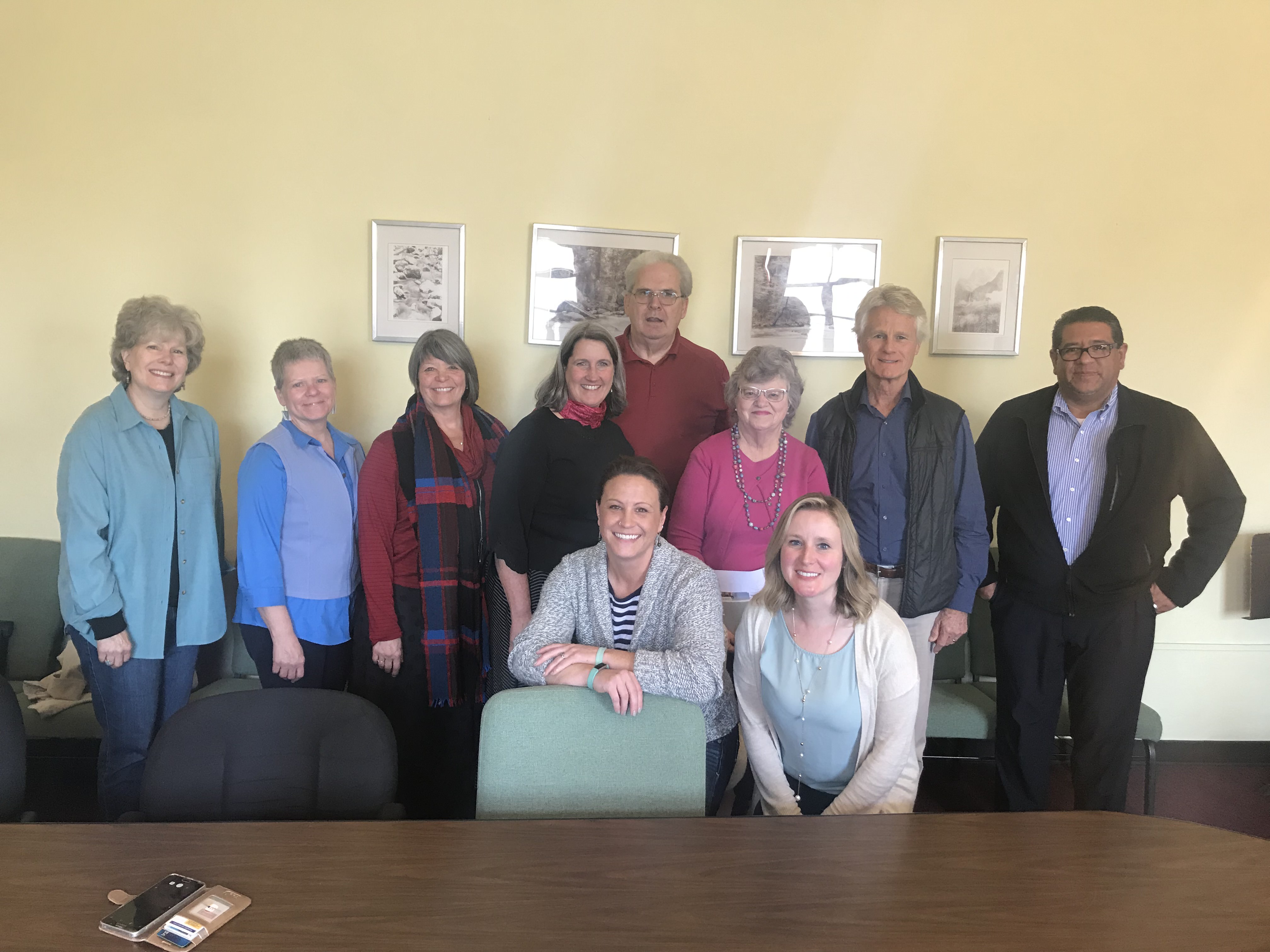By Susan Krehbiel, PDA Associate for Refugees and Asylum
At the end of February, PDA visited Tijuana and San Diego to learn about how local churches are ministering to and with asylum seekers who have made their way to the U.S. border in search of safety and freedom. We were accompanied by members of the Presbytery of the Pacific who also wanted to learn about how best to partner with relatively young, grassroots ministries that have emerged on both sides of the border. What struck me about our visit was not the differences that one might anticipate between the two sides of the border due to different economic realities, but the many similarities: churches responding to a deeply felt call to welcome the strangers in their midst, to minister to their needs and to stand with them in their pursuit of safety for their families.
We began our visit by attending a meeting of local Tijuana church leaders who operate shelters for asylum seekers within their church buildings (often within their very sanctuaries) and those offering to assist them. It was only the second time that this particular group had come together around the possibility of forming a network in which to develop shared practices as well as to better coordinate donations and volunteers. As one after another they shared some of their experiences and challenges, there were frequent nods around the table. They were united in their desire to offer services that honor the dignity of each person who comes through their doors, even in the midst of chaotic circumstances.
Many Tijuana churches first began providing shelter in 2016 to Haitians who had come to Tijuana on their way to the U.S. border. These refugees left Haiti when their homes and livelihoods were destroyed in the 2010 earthquake. After several years spent attempting to settle in Brazil, they had given up and made their way north. Many ended up settling in Tijuana. For some churches, this was the end of their ministry. The churches gathered at this meeting, however, find themselves committed to creating a long-term ministry with permanent shelter facilities. We found ourselves in agreement with their assessment that they are in a pivotal moment: this call to ministry with asylum seekers is not short-lived and is one they feel called to sustain for the future.
On day two in Tijuana we visited 3 different shelters, all renovating or planning renovations to allow dedicated, permanent spaces including dorm rooms, kitchens, dining areas and in some cases places for more private conversations with counselors or attorneys. And yet, in all of these shelters they did not prepare and then wait to be needed—they were needed and only then did they start to prepare.
We found this same story playing out on the north side of the U.S.-Mexico border: a church building was dedicated to community service even as the founders were not entirely sure what that would really mean. Then in 2016, they learned about Haitian asylum seekers who had crossed the border at Tijuana, were paroled into the country, and released in downtown San Diego. After many ups and downs during the first two years of meeting as many asylum seekers as they could, the Christ Ministry Center is going through its own sort of renovation—from one shelter location to a network of shelters, now known as “Safe Harbors.” Like the churches in Mexico, they have developed their ministry and their building in the midst of providing shelter and identifying volunteers and church partners. While the majority of asylum seekers they serve are transitory, the Safe Harbors network has begun searching for other churches/programs to partner with so that they can develop longer term options for people who are not ready to travel (such as pregnant women or people with health concerns) as well as to provide long term integration for those who do not have family or friends to join. A few local Presbyterian congregations are already involved, however we learned of the need and interest in expanding the network further north in California and even east to the Arizona border. In the conversations that ensued, there was energy and enthusiasm amongst our team of visitors about building a capacity for asylum housing throughout Southern California.
As we listened to these local faith leaders describe their desire to grow and improve their ministries, I became deeply grateful that when they heard God’s call, they answered with a resounding Yes, Lord, here I am. Convicted by their faith and by the need before them, they chose to welcome these newcomers. Or as a pastor in Tijuana said, “when people ask me how we can do this ministry, I tell them that God will provide. And when again they ask “How?” I again answer, “God will provide.”
PDA is intent on continuing to explore ways that it can support these ministries through the generous contributions we receive from PC(USA) congregations and in partnership with the presbyteries and ecumenical ministries.
For more information on what PDA is doing with asylum seekers and humanitarian response along the U.S.-Mexico border, click here.
